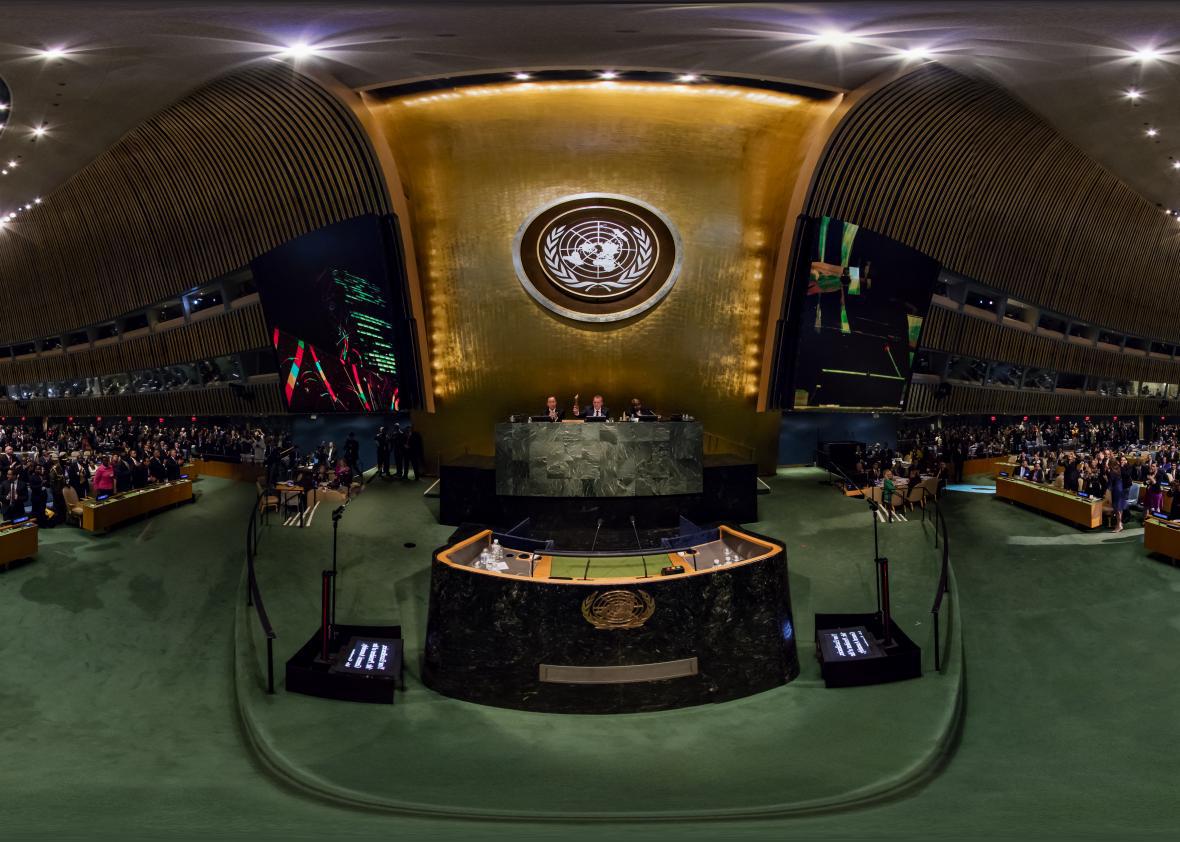Connect. It just might be the word of the year. At the United Nations, Mark Zuckerberg and Bono issued a call to “unite the earth” and, with other global opinion shapers and business leaders, released a Connectivity Declaration to “connect the world.” The U.S. State Department’s Global Connect program makes Internet access a foreign aid priority. The U.N. has tied global development goals to universal, affordable Internet access, while other international organizations proselytize to Connect the World.
But connectivity alone cannot be global policy. Respect for privacy and the freedom of expression must go hand in glove with the drive to connection.
To be clear, universal access to the Internet is a paramount goal that we share. Without the Internet, billions lack access to the 21st century’s essential global forum for expression, communication, information, innovation, and wealth creation. Accordingly, the U.N.’s ambitious “Global Goals for Sustainable Development,” adopted last month to great fanfare by the U.N. General Assembly, rightly emphasize that access to technology underpins every other “Global Goal” toward the eradication of extreme poverty.
And yet, at the U.N. last month, the conversation missed an important element: the kind of Internet to which the next 4 billion will connect. Will the Internet be free and open as it has largely been over the last three decades, or will new users join an increasingly tracked, surveilled, censored, insecure, and restricted platform that violates their basic rights?
Connectivity must be considered carefully because, by itself, it facilitates a number of threats that transcend borders. The digital pipeline that is essential to economic development also connects, and threatens, activists and members of vulnerable groups worldwide. In order to ensure the equal treatment and protection of global Internet users, every packet of information passing through our pipes deserves equal treatment and protection as well—from Internet service providers, policymakers, and content platforms alike.
Much of what we do online and off is subject to surveillance, both targeted and mass. But governments are seeking to restrict access to basic tools of security—encryption, anonymity, HTTPS connections—that protect everyone from the breach and interception endemic online today. Those risks, prevalent in the developed and developing worlds, fall particularly hard on those most vulnerable to attack: activists, journalists, members of ethnic, religious, political, racial, sexual minorities. But in fact, the privacy and security of all Internet users are threatened.
If we push a connectivity agenda devoid of any protections keeping the Internet and its users free from abuse, governments can discriminate against all kinds of content, activities, and users online. They’ll force ISPs and telecom operators to shut down—as they did in Iran in 2009 and the Arab Spring in 2011, and in Burundi, India, and Iraq just this year, among other countries—and they’ll bless deals creating a two-tiered Internet pushed by so-called zero-rated service providers that limits browsing to pre-selected applications and establishes new gatekeepers standing between Internet users and the information they seek to create, download, and share. Meanwhile, journalists, artists, and members of vulnerable groups could lose access to audiences and information at the hands of government, and sometimes corporate, censors.
In the short run, we call on the U.N. General Assembly to heed civil society voices in the lead up to their December High Level Meeting about access to the benefits of technology and information worldwide. The U.N. meeting, concluding the 10-year review of the groundbreaking World Summit on the Information Society, should explicitly promote connectivity that allows full access to the entire global, free, and open Internet. Any new agenda the General Assembly adopts should incorporate the Human Rights Council and proceed in consultation with the Office of the High Commissioner for Human Rights.
Civil society has already weighed into the U.S. government’s Global Connect project, offering ways the program can extend universal, equitable, secure, affordable, and high-quality Internet access on the basis of human rights, the rule of law, and net neutrality.
In the longer term, net neutrality policies should be guaranteed wherever Internet infrastructure is being built out. The 13 “Necessary & Proportionate” Principles, which apply human rights to communications surveillance, should also be adopted and implemented as a framework for rights-respecting connectivity.
As they take the connectivity agenda to new global forums—like the World Summit on the Information Society meeting later this month—global leaders should embrace the challenge of building a framework for human rights in the digital age that allows the internet’s current billions and next 4 billion users to connect seamlessly, securely, affordably, and openly. Respect for privacy and freedom of expression must be baked into the connectivity agenda from the start.
